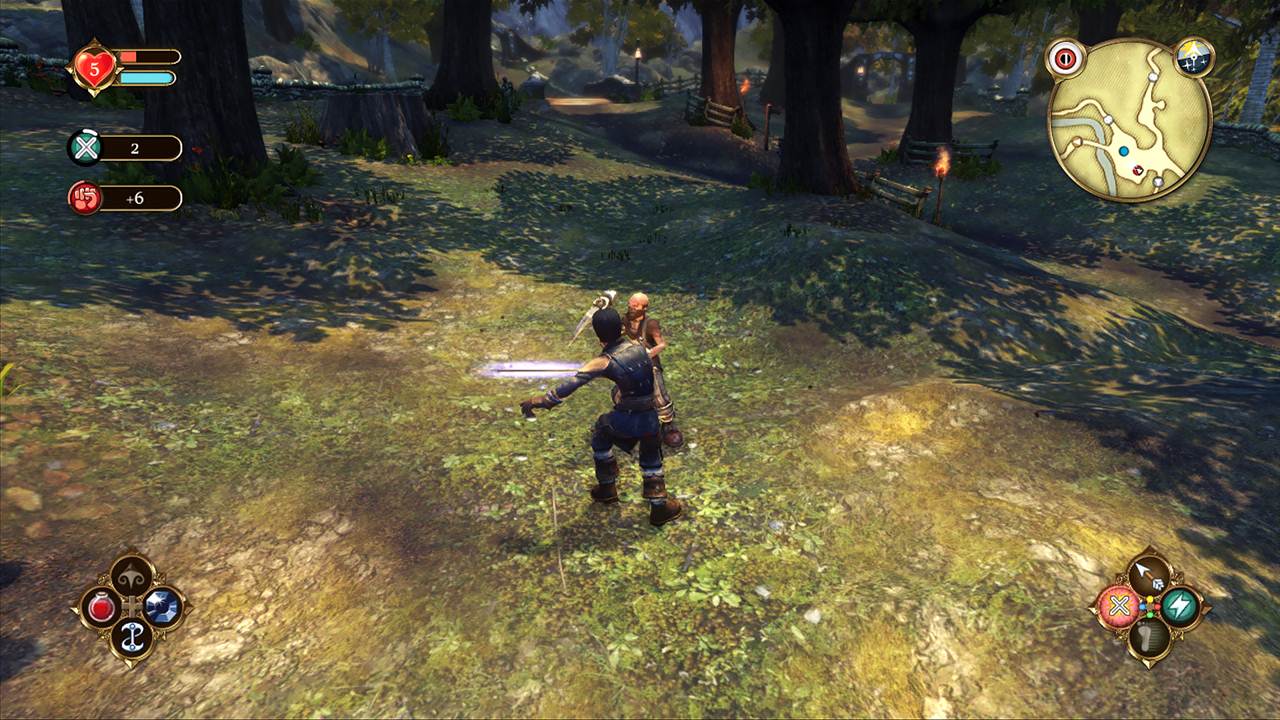Lionhead Studios, a recently acquired Microsoft Studio, released Fable to critical and commercial success in 2004. This birthed an equally successful series of games and a recent reboot.
The upcoming Fable game suggests that after it drifted into steampunk territory in Fable 3, the series will come back to its fantasy roots. The new Fable appears to be going back to the medieval-style RPG it used to be.
The Fable games portrayed a fantasy playground with seemingly inexhaustible possibilities. The resident Fable players are thrilled at Fable's return, so here are five fairly unknown facts about the series.

It Has Unconventional Hero Customization
All Fable games feature a rather unusual development and modification of characters, even for modern standards.
Although Fable II and III permit players to pick either male or female, all games essentially change the 'Hero' gender by gameplay, instead of sliders and numbers.
Deciding who and how to help others, sleeping with others, and treating others with love or hatred in the game will physically alter the Hero’s nature. That will result in it becoming either angelic or evil depending on those choices.
It Sold More than Halo
Fable was more successful than Halo at first. Fable became the fastest-selling Xbox title at the time, with 600,000 US sales in the first month. This was in a post-Halo era.
As Halo's success skyrocketed, Fable sold approximately half the amount of copies as Halo: CE at an approximate 3 million – but remarkable.
Fable II overtook this at 790,000 launch month sales and was last reported as having 3 million sales like Fable 1, but this was in 2010, a decade ago. Fable III has continued the trend and was last reported with sales of 5.1 million.
It Features a Star-Studded Cast
It stars Jennifer Saunders and John Cleese, who respectively played Shrek's Fairy Godmother and King Harold, or Keith Wickham, who played Gordon in Thomas the Tank Engine and portrays the original game's antagonist.
British comedian Stephen Fry, who plays Reaver, an amoral businessman with ultra-selfish impulses, is a franchise regular.
Although not appearing in Fable 1, Reaver is an essential part of both 2 and 3 and remains so in the Fable novels, Blood Ties and Edge of the World.
Additionally, we can't bring up Fable's voice acting without acknowledging Zoe Wanamaker's great performance as Theresa - the only character so far to star in any Fable game.

It Has 10 Titles
Although the series ended at Fable III, several more followed, and even more than the preceding two games. Fable was released back in 2004, followed by Fable: The Lost Chapters the next year.
Four years after the original, Fable II was launched along with an accompanying Xbox Live Arcade game named Fable II Pub Games.
A similar mobile game in concept to Pub Games was released shortly after Fable III in 2010; it's called Fable: Coin Golf.
Then, both Fable Heroes and Fable: The Journey were released in 2012 as somewhat connected elements like the others. In 2014, the original game was brought to Xbox 360 during Fable Anniversary.
As the last game released in the series (not including the cancelled Fable Legends), Fable Fortune was a free-to-play card game with its servers shut down in March earlier this year.
It Has a Unique Identity
Despite Fable's exclusion from the real world, many lines, names, and places are references to almost something relevant to pop culture.
References are commonplace from Anchorman to Transformers and The Simpsons or enigmatic country singers. It represents Fable’s sudden love for humor and silliness in a genre that's too often anything but that.
It also proves how phenomenally Fable has traditionally mixed its universe with opposing tones to build one of recent memory's most convincing fantasy worlds.

Conclusion
Fable is a flickering niche of the video game industry that doesn't fear taking itself too seriously in an inherently silly medium.
Recalling its history will make you understand how 'next-gen' this series has always been and how impressive a new entry might be.



